In Greek as well as Roman mythology, Hygieia (also Hygiea or Hygeia; /haɪˈdʒiːə/; Ancient Greek: Ὑγιεία or Ὑγεία, Latin: Hygēa or Hygīa), was one of the Asclepiadae; the sons and daughters of the god of medicine, Asclepius, and his wife Epione. Hygieia was the goddess/personification of health (Greek: ὑγίεια - hugieia), cleanliness and hygiene. Source.
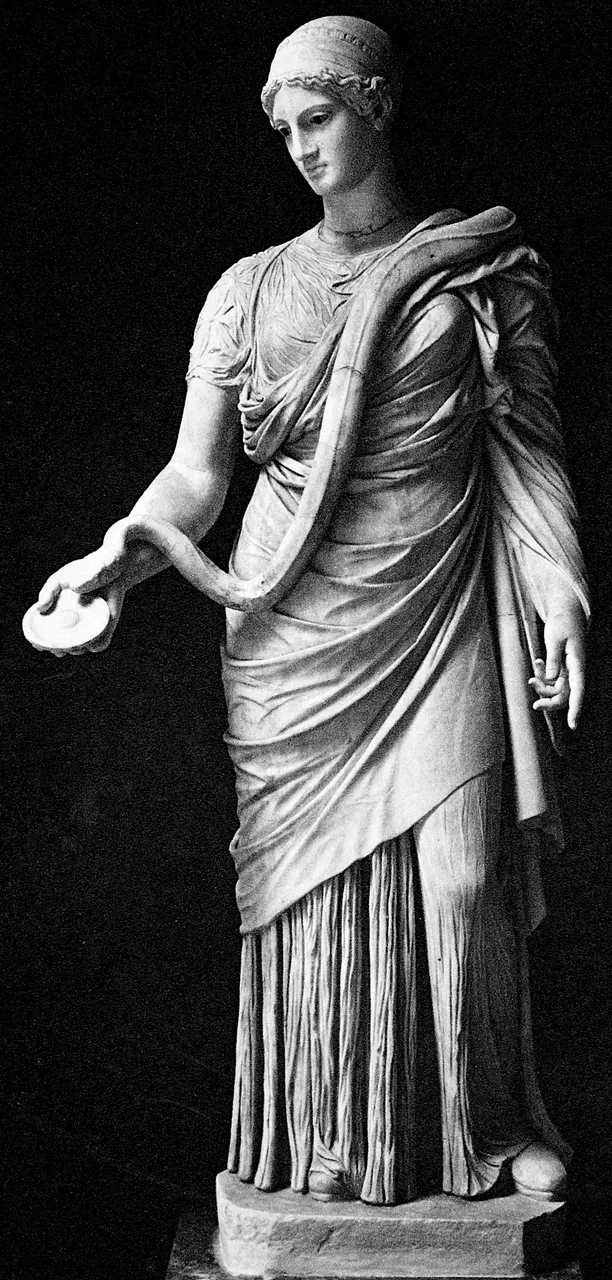
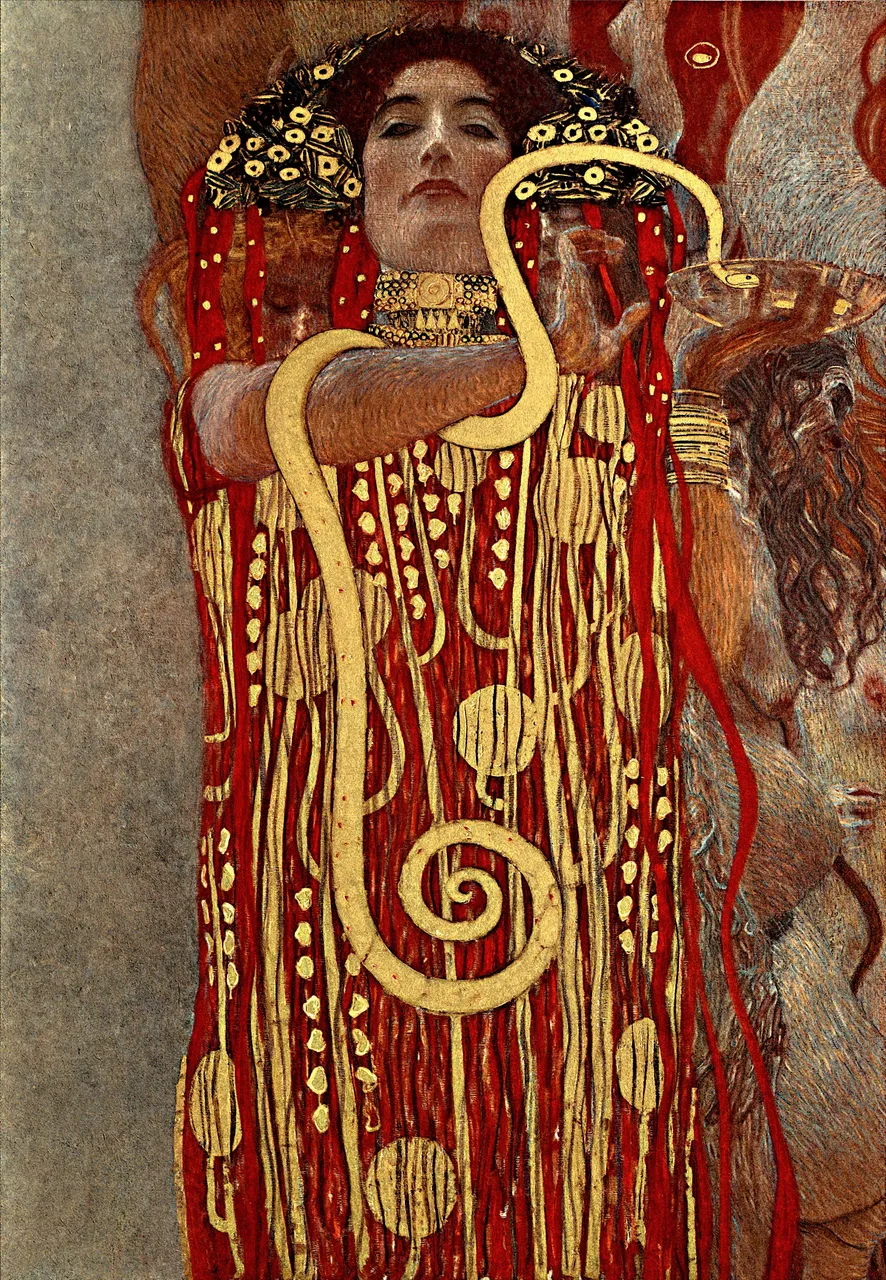
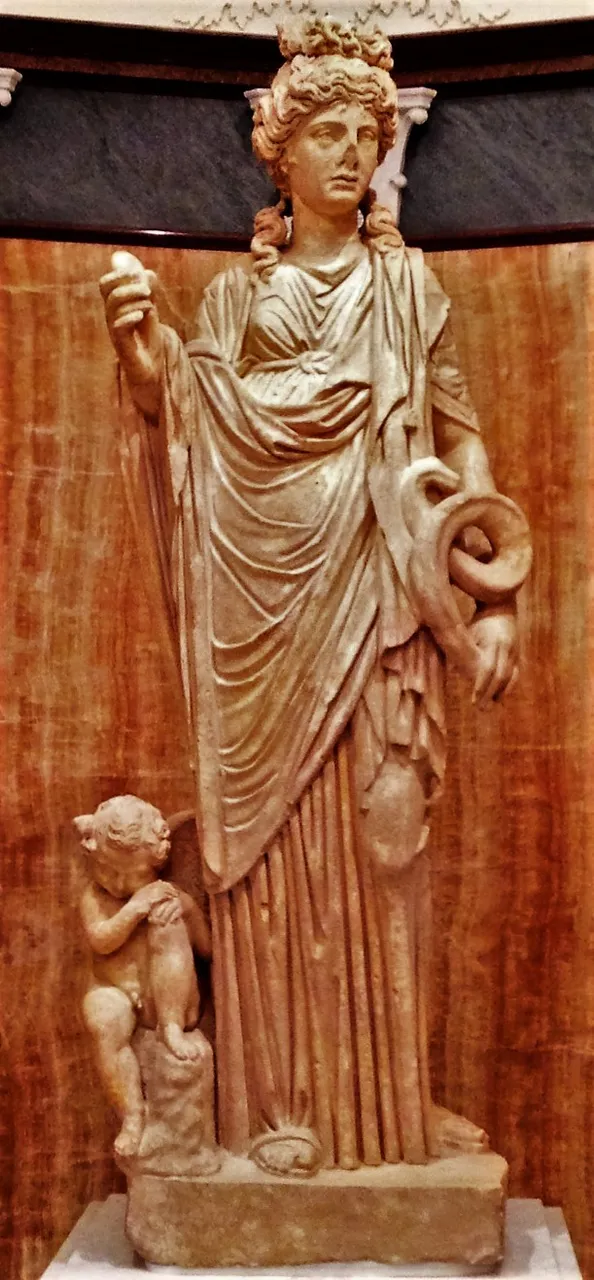
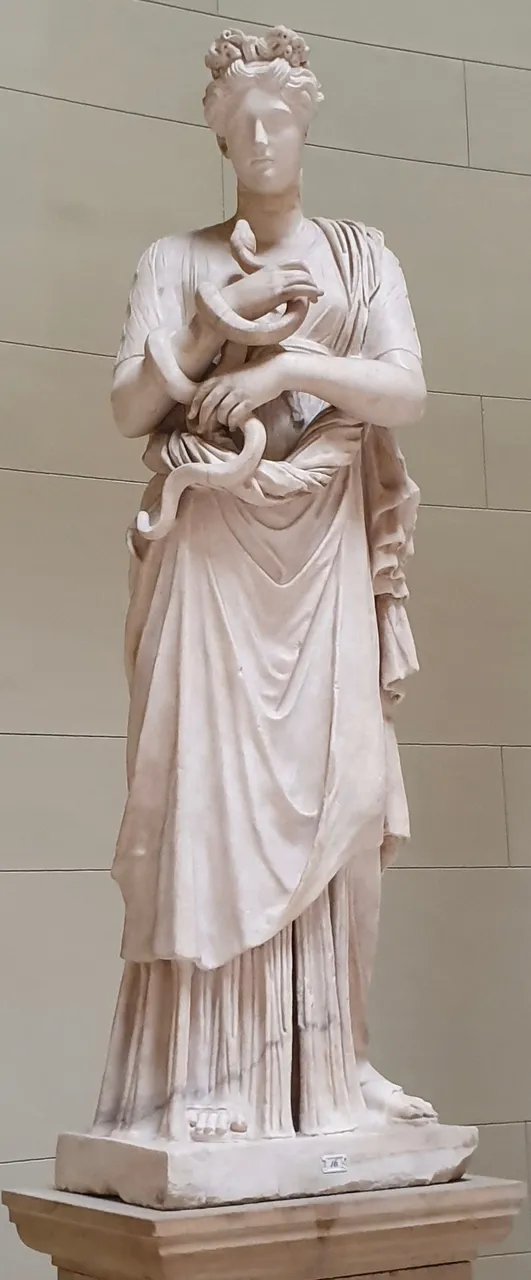
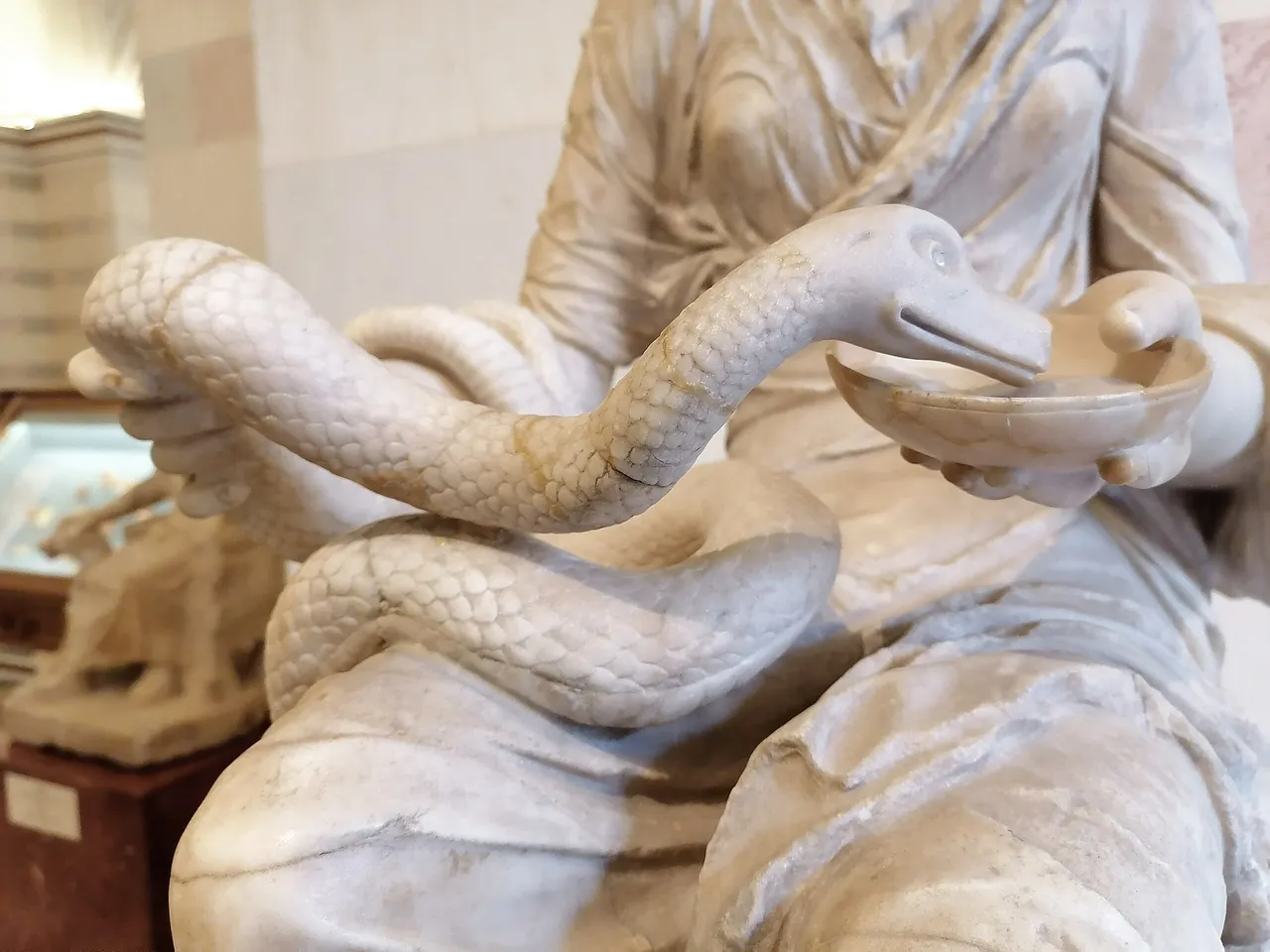
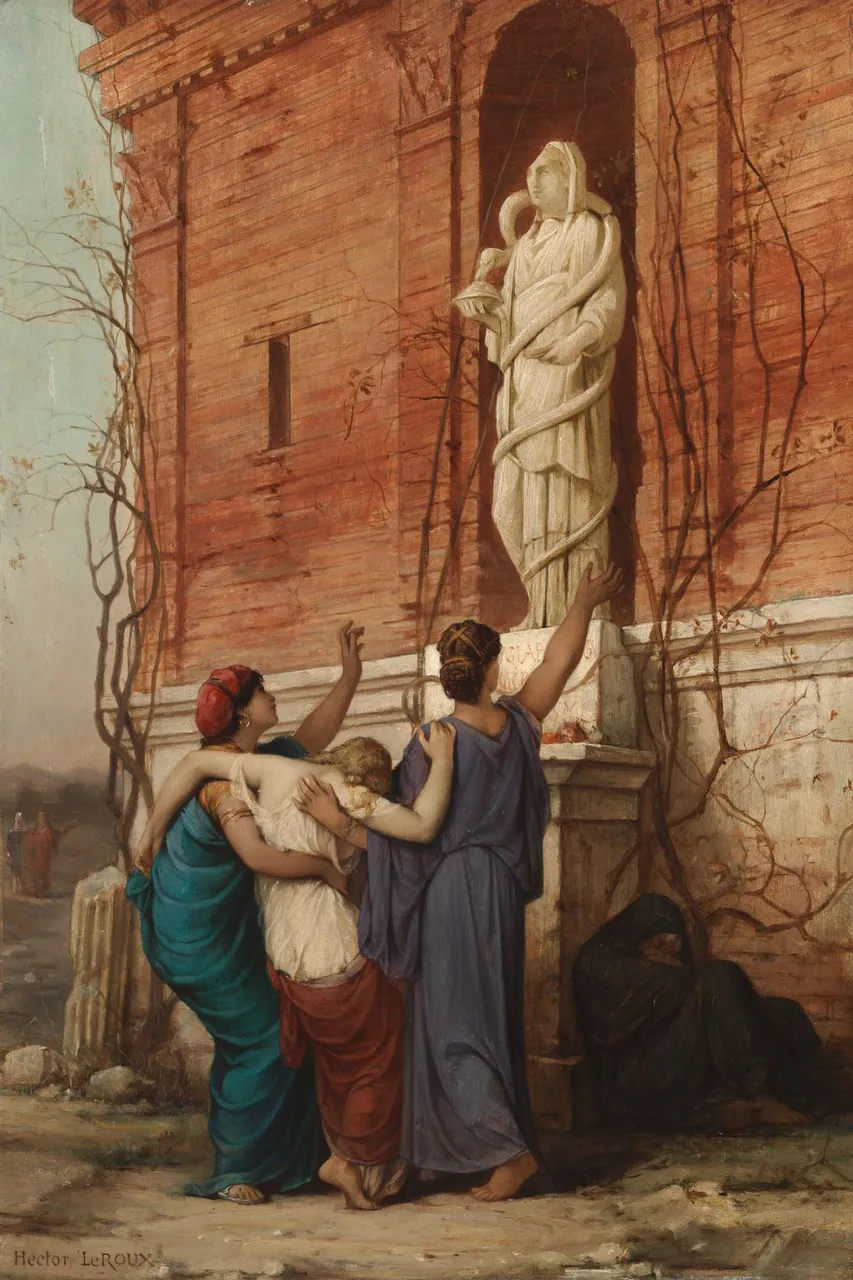
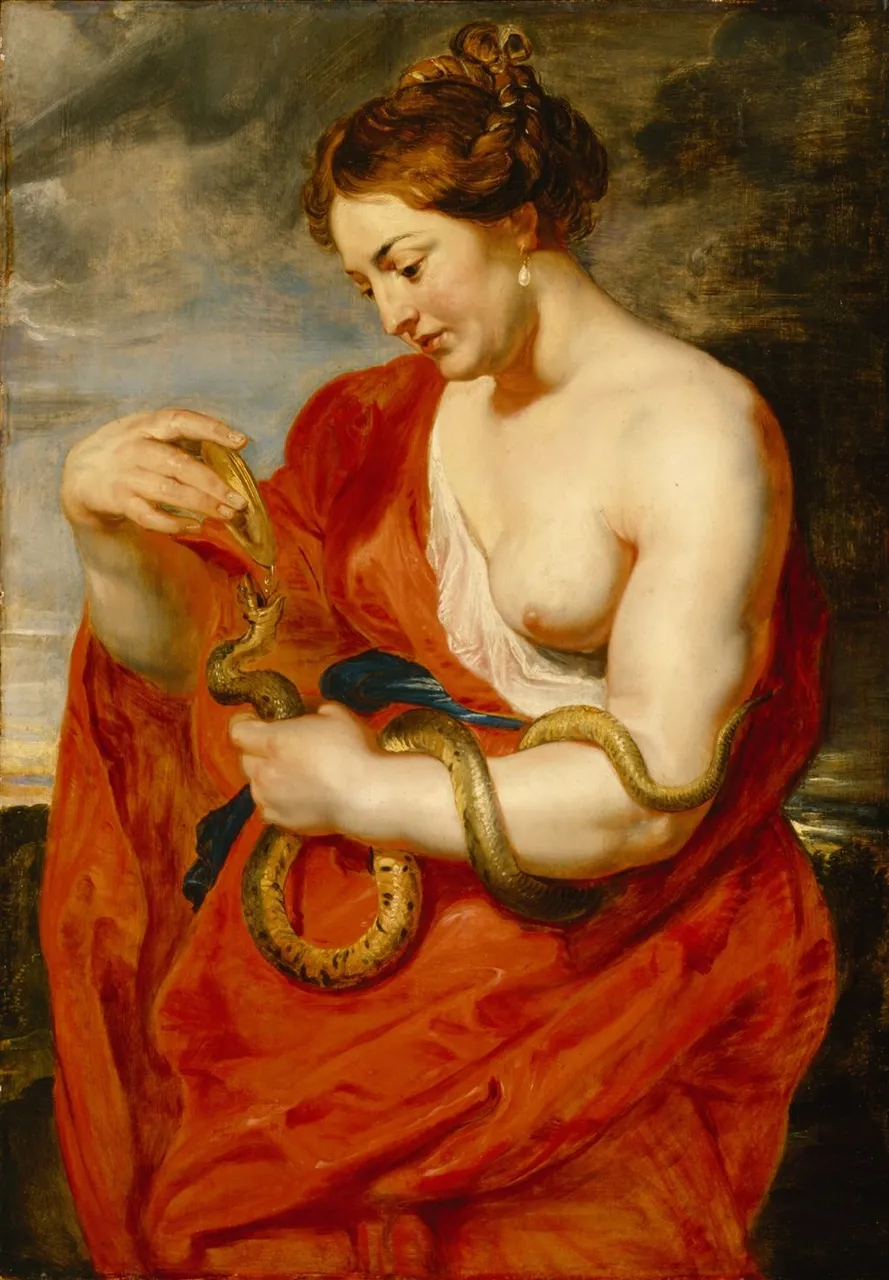
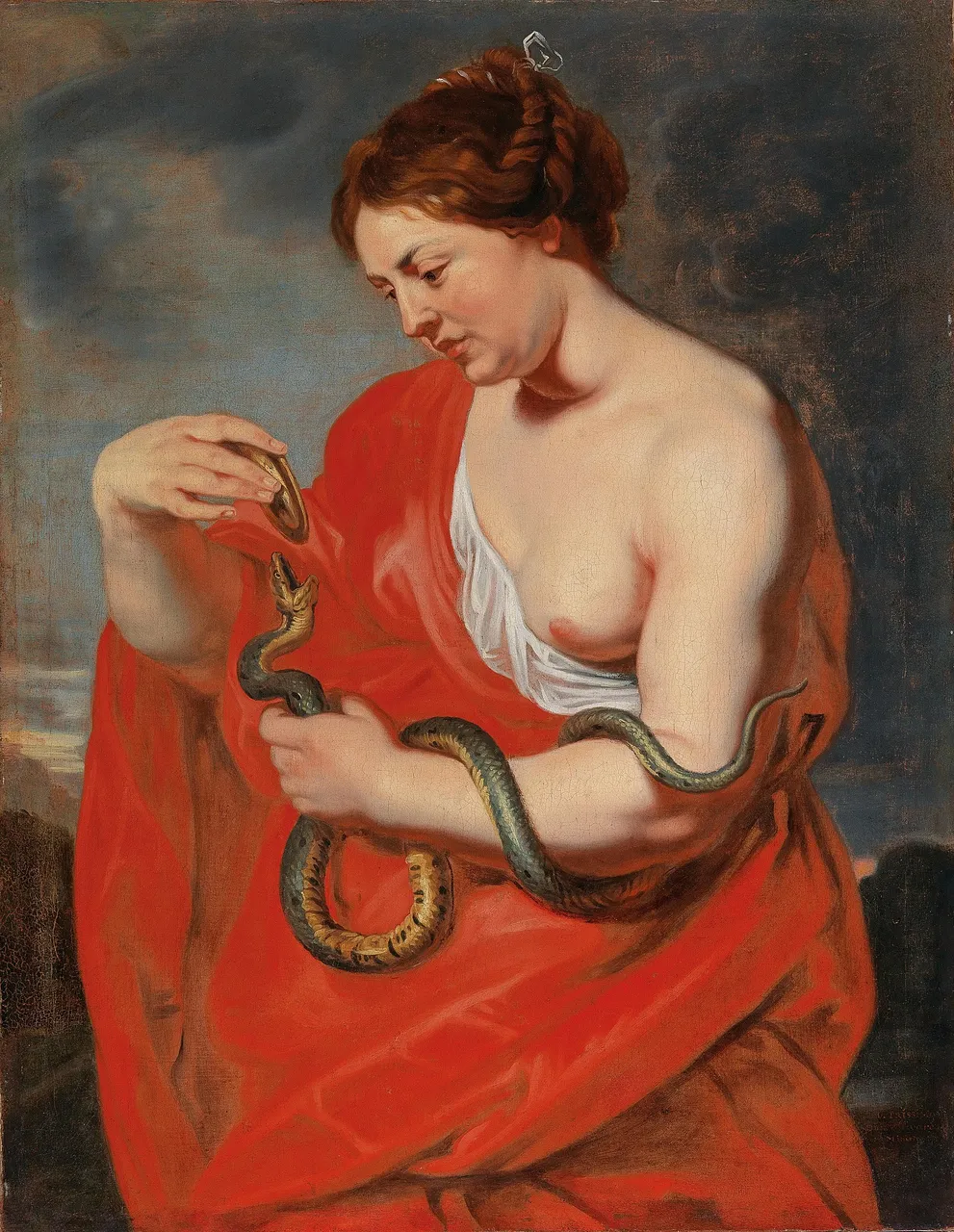
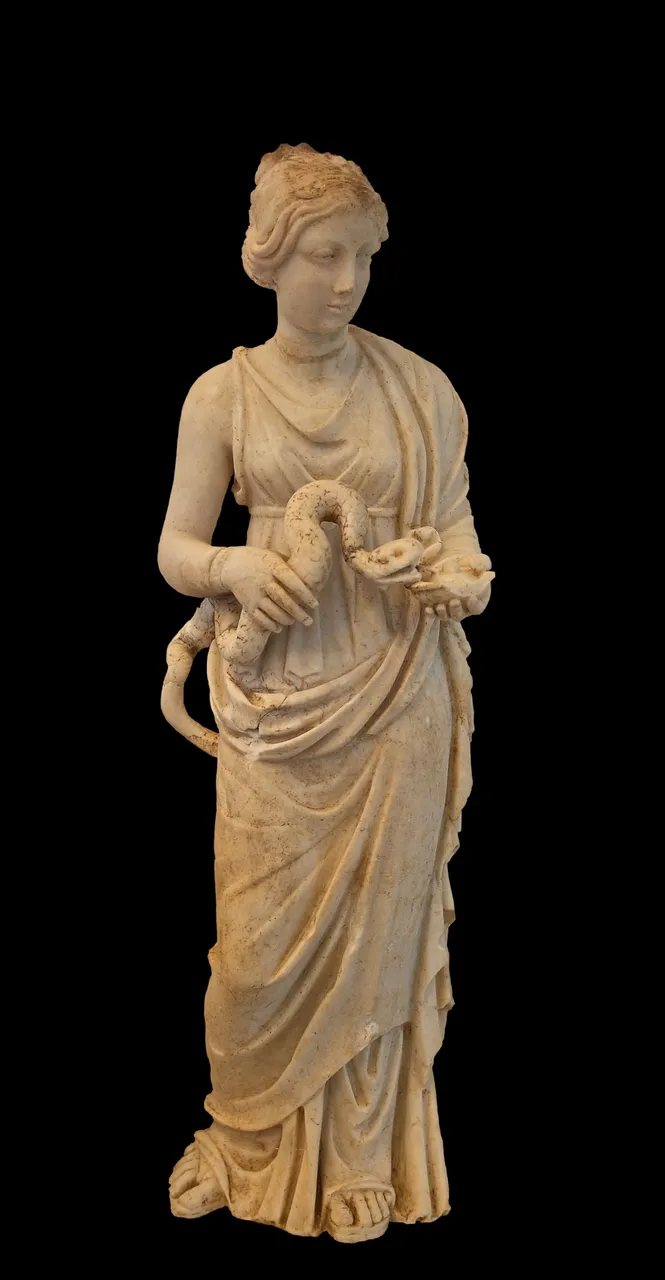

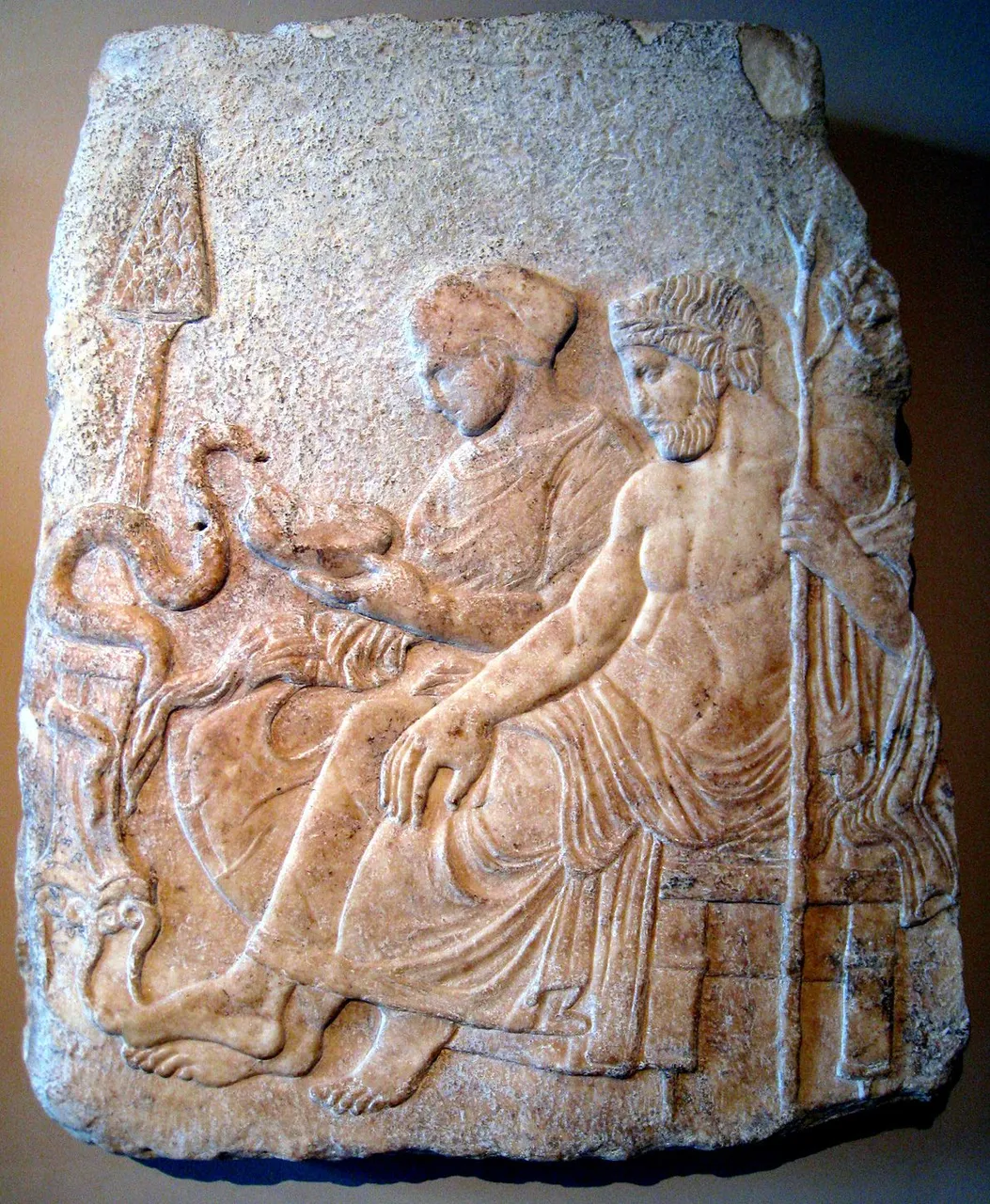
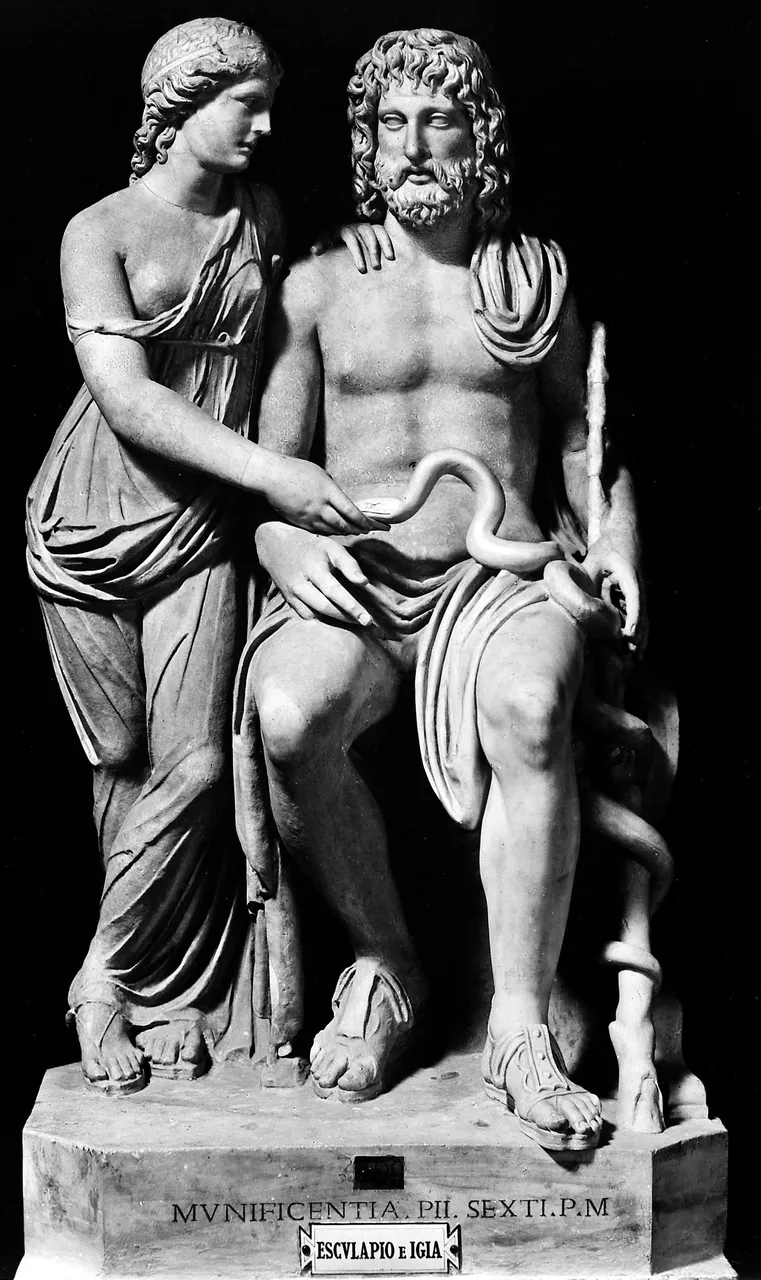

Hygieia knew all about snakes. Interested in exploring more about the potentials of snakes and their venom (compare the words venom and Venus) for medicinal and other uses?
